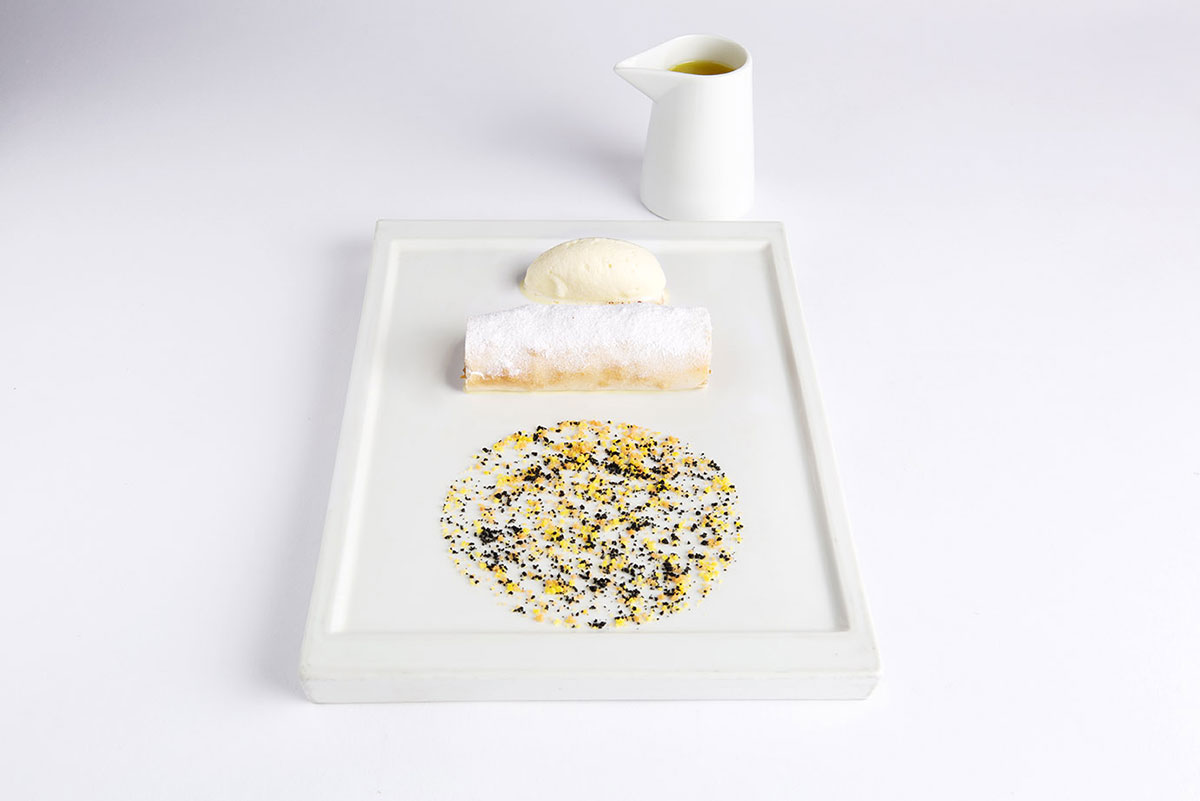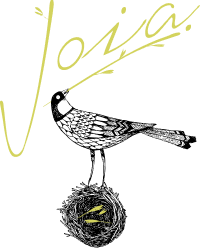ABOUT US
It was the first time that a gourmet vegetarian restaurant with an evocative name had opened up in the West. Joia’s desire and basic objective was to disseminate an eco-friendly, healthy, plant-based cuisine.
After a few years, the restaurant began reaping rewards. Many people started dining at the restaurant, and food critics began noticing it and singing its praises. In 1996, Joia was the first vegetarian restaurant in Europe to be awarded a Michelin star, and in 2020 it receives the green star from Michelin, for its sustainable cooking and its virtuous gastronomy, focused on green style teachings such as self- producCon of raw materials, zero use of plasCc and other non-recyclable materials, energy impact, waste disposal and special care of personnel.
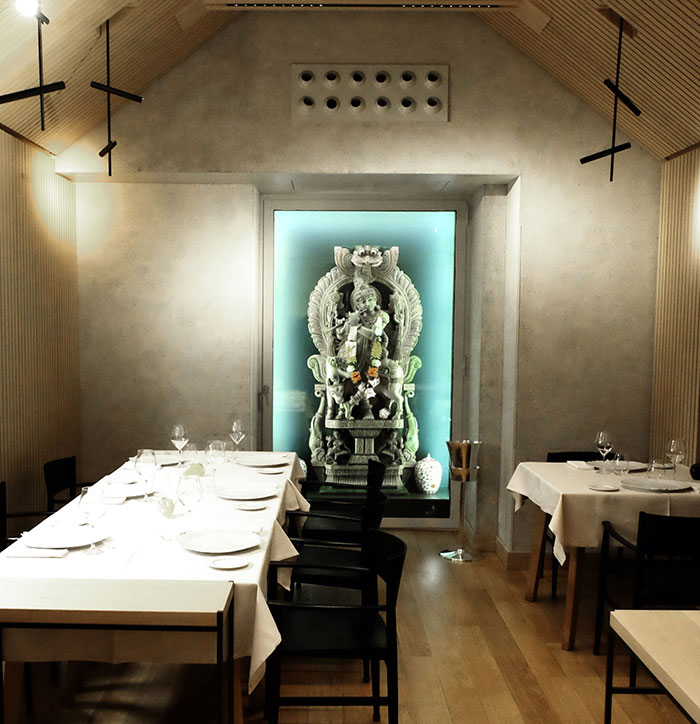
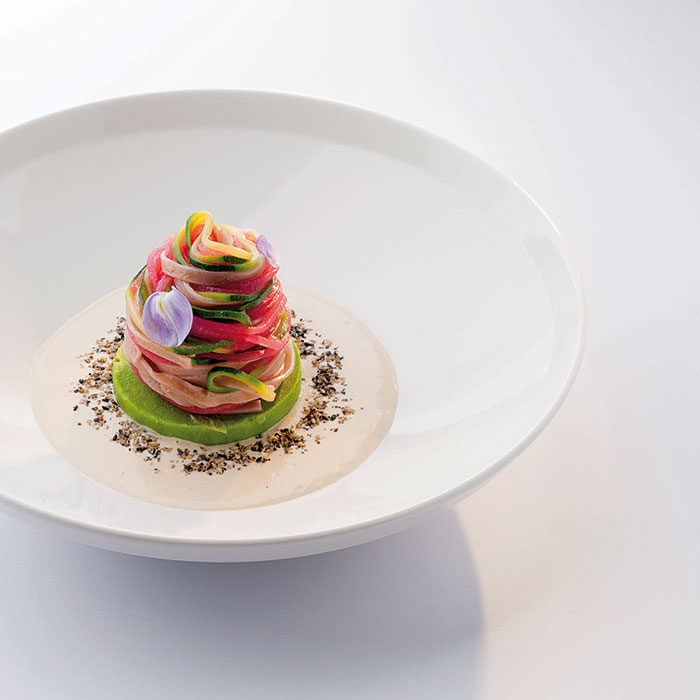
Our dishes are artistic portrayals; each one is unique, and they are precursors of a higher dimension. We are committed to conveying our passion, new perspectives and trailblazing thoughts.
Our thirty-year history is focused on quality, sustainability, and respect for the environment and the health of our guests.
Our painstaking attention to quality stems from the careful study of traditional cuisines and an ongoing exchange of views with master chefs who have refined our menu. Although we are considered outsiders in the restaurant world, our primacy in an avant-garde cuisine is well recognised.
We firmly believe that building rapport across cultures is extremely rewarding. We regard each country’s food as being the most effective means of bringing together different ideas and people.
THE INTENT OF OUR OFFER
The quality of our ingredients – which are always organic, biodynamic or sourced from synergistic vegetable gardens – is fundamental, not only for achieving superb flavours, but also to protect the plant and our interior landscape. Quality cuisine is achieved through the rigorous choice of raw materials and mindful use of them. Food is good when its raw materials are sourced from fair trade, which is produced by fully respecting the environment and also those who produce the raw materials.
Our ingredients – which are always seasonal – come from farmer friends, with whom we talk and, together we decide what should be grown, but also how to highlight heirloom vegetables. The real change consists in choosing to cultivate in a mindful way, respecting, understanding and not dominating nature. Being a farmer does not only mean following a particular farming method, be it organic or biodynamic; it is a deeper concept based on a genuine relationship with products and their life cycles, a relationship not made of words, but rather of observation and respect.
Our nearby nature-friendly suppliers, who respect life and our health are:
Chiara Onida del Boscasso, Federica Baj and her family for asparagus and good potatoes; Azienda Agricola Corbari (farm) for fruit and vegetables; Luca Sala of Cascina Selva for milk, cream and vegetable rennet cheese; Gabriele Corti for the good rice of Cascina Caremma; CarnaroliNat (rice) of Azienda Tronchin (farm); beetroot grown by our friend Gianluca Ferrari, from the Slow Food presidia, delivered to us by the Micibo guys, Giovanni of Orto Sano; Altalanga for the biodynamic hazelnuts from the Somea meadows and woods, which from spring to autumn feed us with the excellent fruit that is the essence of Joia’s cuisine; from the Ticino pastures we buy cheese with exceptional flavours. Many other producers also provide us with excellent products.
NaturaSì supplies us with any other ingredient we need. We have been their faithful customers for thirty years and we greatly appreciate their work in the field of sustainable agriculture.
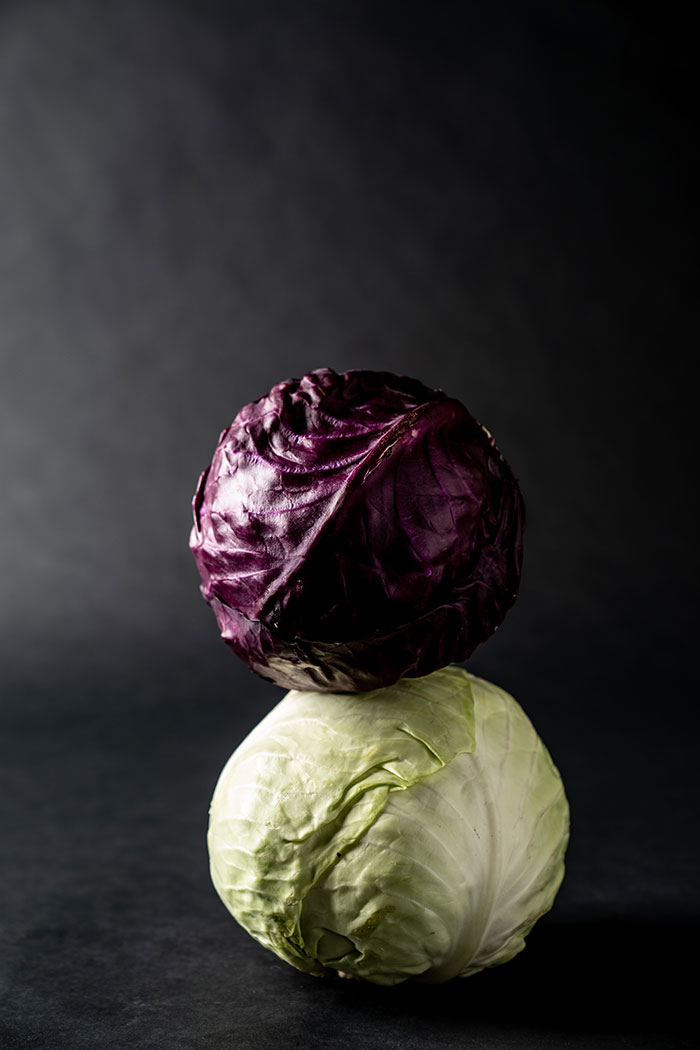
The method of procuring our ingredients is extremely important. We never stock up too much so that the food does not get old and lose its nourishing elements. We cultivate small amounts of products in order to always give customers freshly cooked food.
The cold chain is very important to ensure that the precious foods do not lose their fragrance.
In certain seasons, we tend to stock up on rare ingredients such as cherries, garlic, citron and elderberries; we then process them to preserve them. Their flavours are crucial for Joia’s distinctive style of cuisine.
We pay great attention to hygiene. Cleaning staff devote a lot of time to sanitising everything in the kitchen and dining room.
We try to minimise waste. Every ingredient is used down to the very last bit, and never thrown away. Therefore, we have put in place a ‘circular cuisine’.
Last but not least, there are a lot of women on our staff. Their incredible energy improves the overall mood in the restaurant. They are also very good at creating and cooking new dishes, as well as tending to the needs of diners.
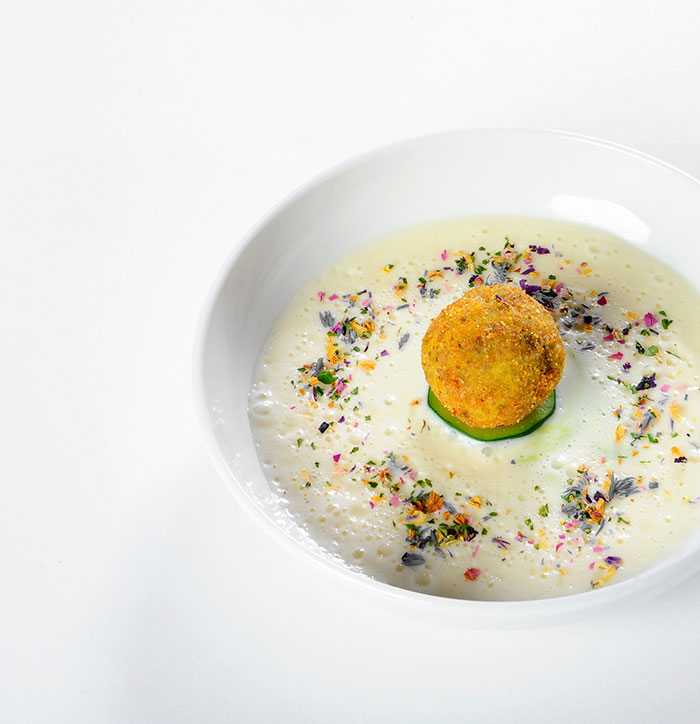
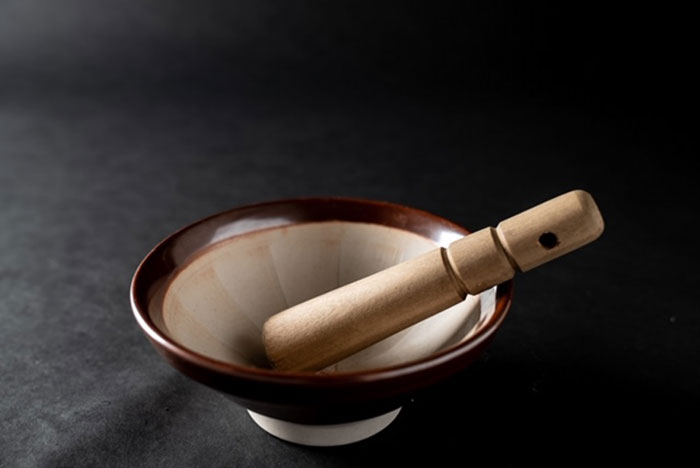
The world and society are constantly changing. It is crucial to listen to these rhythms and adapt our way of life to them. This helps improve our relationship with diners, who in the last decade have fortunately embraced our choice of eating healthy, environmentally friendly food. At the same time, it is important to be ahead of the times, trying to persuade people to move in a new direction, which is perhaps only intuited. For instance, we succeeded in limiting the use of animal proteins many years ago and the novel dishes we introduced have left their mark. They have helped us create a unique cuisine and have significantly contributed to Joia’s success, therefore also to vegetarian cuisine, in general.
Vegetarian cuisine in Italy followed in our footsteps. Today, high quality vegetarian restaurants have been set up throughout Italy, often run by chefs who have worked with us.
Our creative approach is also unique. Each dish is designed as an original work of art represented by an evocative name that poetically speaks with diners.
Aesthetics are based on a codification drawn up by Pietro Leemann, who uses both Western and Eastern forms of art, past and present.
The aim is to expand the culture of food by interacting with other forms of artistic expression. From music to sculpture, from theatre to dance, from painting to spiritual art, we have allowed ourselves to be inspired and contaminated by the creative thinking behind art.
Obviously, a dish can be good even if it is very simple, but we are more interested in a more complete dimension.
Our point of reference is the Zen cook. In monasteries in the East, cooks – who are second in importance only to abbots – must be virtuous and very knowledgeable in order to deal with the fundamental role of food, which essentially affects the health and physical-psychological condition of the monks. After all, the Shojin cuisine of Zen temples is perhaps the most comprehensive and elegant in the world. The cuisine does not focus on cooking techniques and refinement, but rather on harmony and respect for the ingredients that are used.
